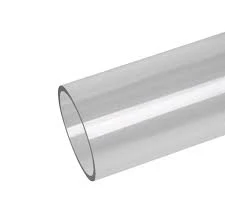Nov . 27, 2024 04:29 Back to list
Exploring the Benefits and Applications of HDPE Panels in Modern Construction
Understanding HDPE Panels Their Properties, Applications, and Benefits
High-Density Polyethylene (HDPE) panels are increasingly recognized for their versatility and durability in a wide range of applications. Made from a thermoplastic polymer, HDPE offers exceptional resistance to impact, chemicals, and moisture, making it an ideal choice for various industries. In this article, we will delve into the properties of HDPE panels, their applications, and the numerous benefits they provide to users.
Properties of HDPE Panels
HDPE panels possess a unique set of characteristics that distinguish them from other materials. One of the most significant properties is their high tensile strength, which allows them to withstand significant weight and pressure without deforming. This makes them popular in construction and industrial applications, where structural integrity is crucial.
Additionally, HDPE panels are known for their low-density structure, which contributes to their lightweight nature. This aspect not only makes them easy to handle and install but also enhances their cost-effectiveness in various projects. The panels are also highly resistant to moisture, making them suitable for outdoor use and in environments prone to water exposure.
Chemical resistance is another notable feature of HDPE panels. They can withstand a wide range of chemicals without degrading, which is particularly beneficial in the chemical, food, and agriculture industries. This resistance also contributes to their longevity, leading to reduced maintenance costs over time.
Furthermore, HDPE panels are UV-stabilized, ensuring that they do not degrade under sunlight exposure. This feature makes them ideal for outdoor installations where other materials might warp or lose their structural integrity when subjected to prolonged sun exposure.
Applications of HDPE Panels
The versatility of HDPE panels allows them to be used in an array of applications across different industries. One of the primary uses is in the construction industry, where they serve as wall panels, roofing materials, and insulation boards. Their durability and resistance to moisture make them especially valuable in areas prone to extreme weather conditions.
In the agricultural sector, HDPE panels are often utilized for agricultural liners, storage tanks, and irrigation systems. Their chemical resistance allows them to be safely used for storing fertilizers and pesticides without fear of degradation. Additionally, many farmers rely on HDPE panels for creating shelters and structures for livestock, ensuring a safe and effective environment.
hdpe panel

The food and beverage industry also benefits significantly from HDPE panels. Their non-toxic nature and resistance to bacteria growth make them an excellent choice for food storage and processing areas. Many facilities use HDPE panels for walls, counters, and equipment to ensure hygiene and safety.
Moreover, HDPE panels have found their way into the marine industry, where they are used for boat components, dock building, and floating structures. The inherent buoyancy and water resistance make them ideal for such applications.
Benefits of Using HDPE Panels
The advantages of using HDPE panels are numerous and contribute to their growing popularity. One of the most significant benefits is their environmental impact. HDPE is recyclable, which means that at the end of its life cycle, it can be repurposed and turned into new products, thereby reducing waste.
Additionally, HDPE panels offer excellent thermal insulation properties, helping to maintain temperature stability in buildings and reducing energy costs. They are also easy to clean and maintain, reducing the labor and resources required to keep them in good condition.
Another major advantage is their cost-effectiveness over time. Although the initial investment may be higher than that of other materials, their durability and low maintenance requirements can result in substantial savings in the long run.
Furthermore, HDPE panels are available in a variety of colors and finishes, allowing for customization according to specific aesthetic and functional needs. This flexibility enables designers and architects to use HDPE materials creatively without compromising on performance.
Conclusion
In conclusion, HDPE panels are an exceptional material that offers a wide range of applications due to their strength, durability, and versatility. Their impressive properties not only make them suitable for various industries but also provide significant benefits, including cost-effectiveness and environmental sustainability. As more sectors recognize the advantages of HDPE panels, their adoption is likely to continue to grow, paving the way for innovative uses and applications that can shape the future of construction, agriculture, food processing, and beyond.
-
High-Quality PPR Pipes and Fittings Durable ERA PPR & PVC PPR Solutions
NewsJul.08,2025
-
Black HDPE Cutting Board - Durable, Non-Porous & Food Safe HDPE Plastic Cutting Board
NewsJul.08,2025
-
High-Quality CPVC Panel Durable HDPE & PVC Panels Supplier
NewsJul.08,2025
-
Double PE Welding Rod Supplier - High Strength, Durable & Versatile Welding Solutions
NewsJul.07,2025
-
High-Quality PVC-O Pipe Supplier Durable 75mm PVC Pipe & Connections Leading PVC Pipe Company
NewsJul.07,2025
-
HDPE Drainage Pipe Supplier – Durable & Corrosion-Resistant Solutions
NewsJul.06,2025

